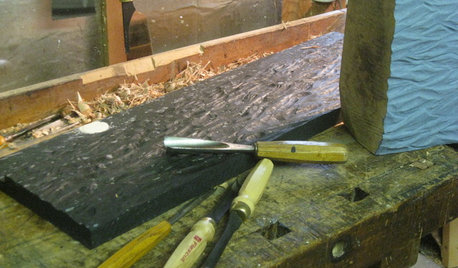The decline of education in the US.
disputantum
16 years ago
Related Stories

INSPIRING GARDENSNative Plants Inspire and Educate at NYC's Botanical Garden
Stroll through the new Native Plant Garden with us to get great ideas for plant choices and sustainability
Full Story
BATHROOM DESIGNRoom of the Day: Master Bath With an Educated Palette
A black and white color scheme and university-inspired decor earn high marks
Full Story
BEDROOMSHouzz Call: Show Us Your College Dorm Room
It’s a study in small spaces: Show us how you’ve brought the heart of home to your cramped college room
Full Story
GARDENING GUIDESWhat Prairies Teach Us About Garden Design
Wild spaces offer lessons for home gardeners about plants, pollinators and the passage of time
Full Story
FUN HOUZZGuessing Game: What Might Our Living Rooms Say About Us?
Take a shot on your own or go straight to just-for-fun speculations about whose homes these could be
Full Story
GARDENING GUIDES10 Top Native Plants for the U.S. Southeast
For a low-maintenance and wildlife-friendly landscape, use Southern natives that withstand heat and humidity
Full Story
BEDROOMSGuessing Game: What Might Our Bedrooms Say About Us?
For entertainment only; actual accuracy may vary. Always don fun goggles and engage your imagination before playing!
Full Story
MATERIALS35 Makers Show Us What They Do With Their Favorite Tools
Houzz readers express their creativity in an astonishing range of ways. View their tools — and their works — here
Full Story
LIFETell Us: Do You Know How to Live With Your Parents?
If you've tried multigenerational living under one roof, we'd love to hear the details
Full Story
ARCHITECTURERoots of Style: Ranch Architecture Roams Across the U.S.
Great remodeling potential and generously spaced sites make ranch homes ever popular. Is one of the many variations right for you?
Full StorySponsored
Leading Interior Designers in Columbus, Ohio & Ponte Vedra, Florida



laceyvail 6A, WV
cindydavid4
Related Discussions
Monarchs Declining!!!
Q
AeroGarden Never Used, For Kids,Educational.
Q
Why would an architect decline the job?
Q
please educate me on using a caterer
Q
disputantumOriginal Author
Jonesy
laceyvail 6A, WV
cindydavid4
froniga
bookmom41
veronicae
veronicae
froniga
cindydavid4
inkognito
veronicae
veer
cindydavid4
bookmom41
pam53
woodnymph2_gw
veer
carolyn_ky
cindydavid4
cindydavid4
Kath
Kath
sheriz6
friedag
annpan
sheriz6
cindydavid4
friedag
sheriz6
friedag
veer
robert-e
Kath
disputantumOriginal Author
annpan
cindydavid4
vickitg
Kath
annpan
Kath
annpan
Kath
annpan
ccrdmrbks
veer
carolyn_ky
annpan